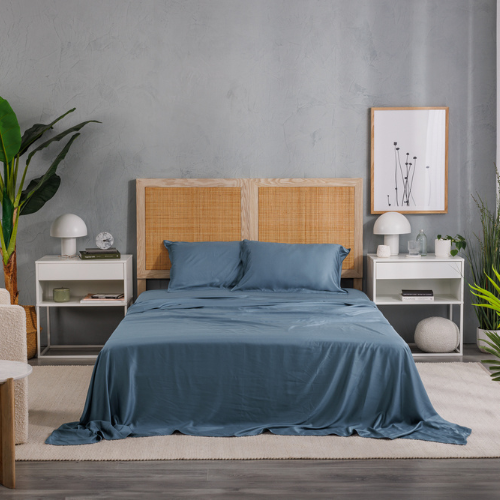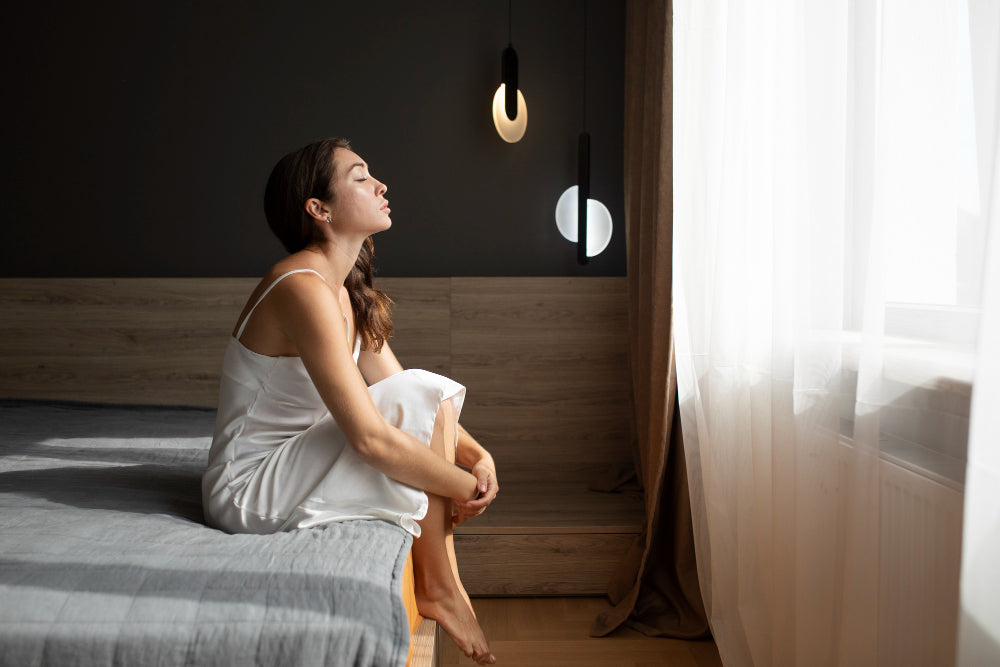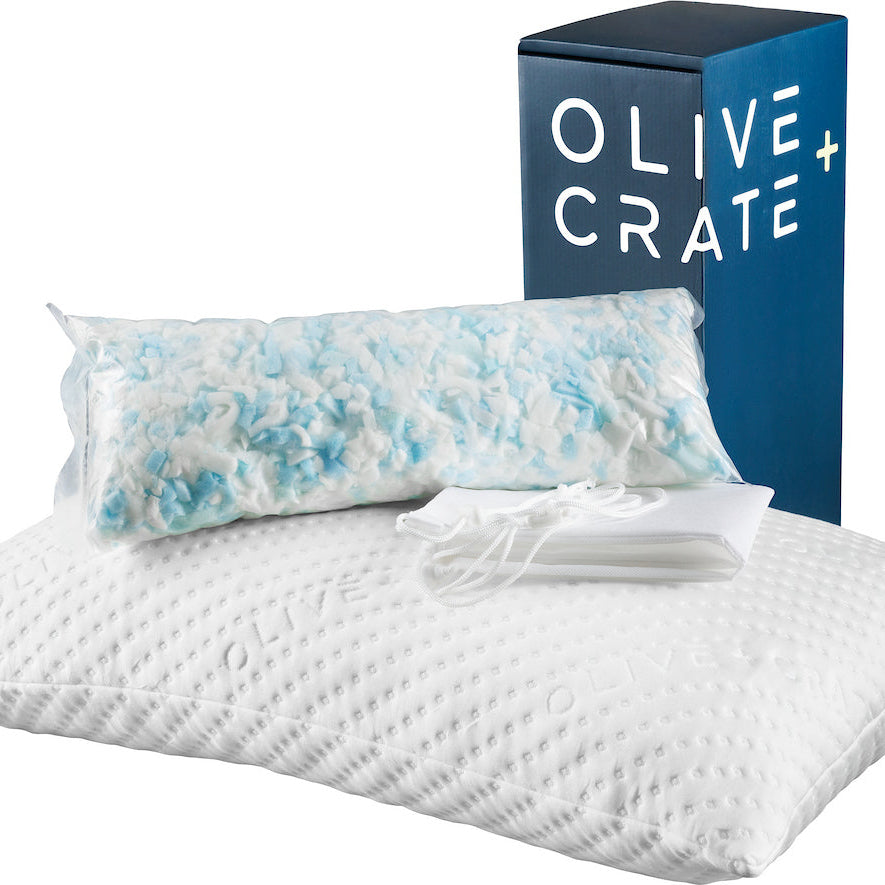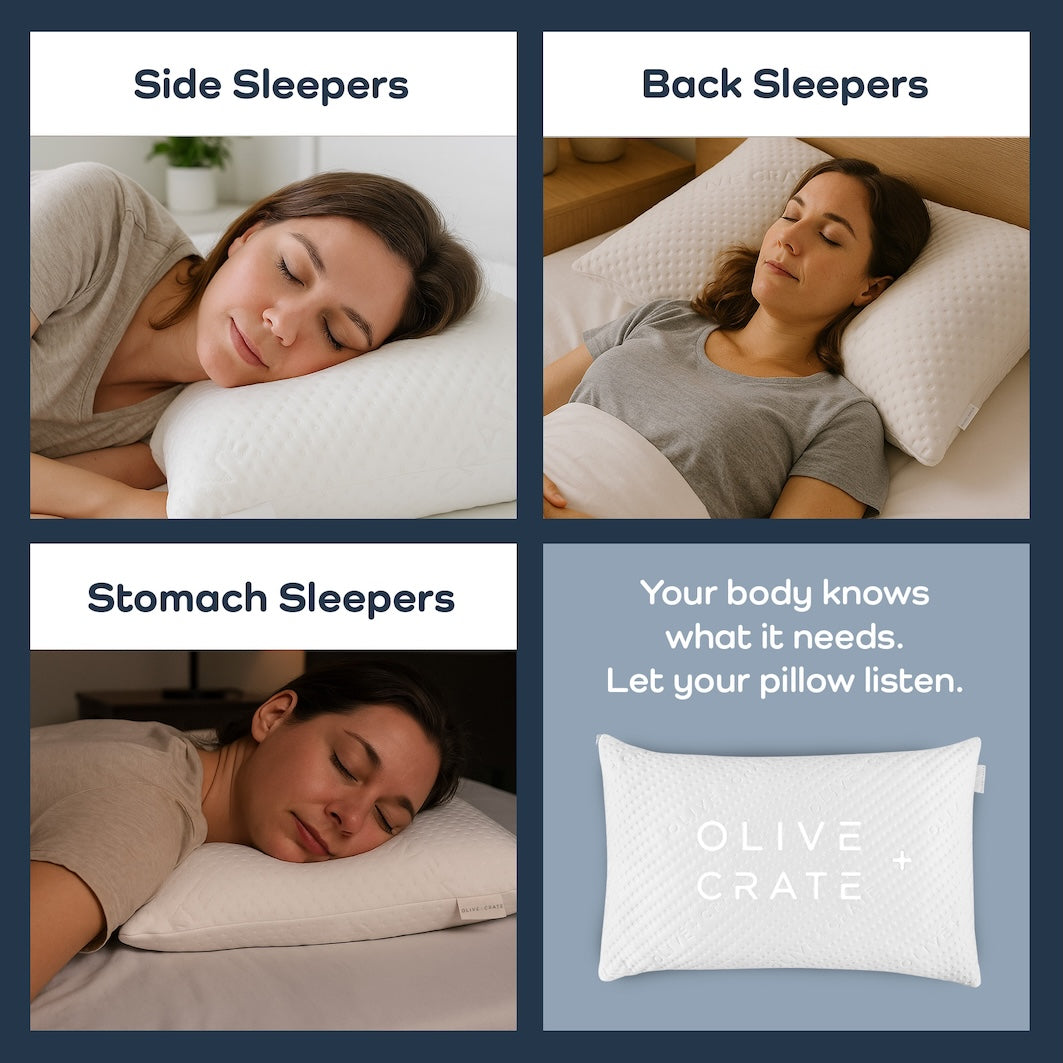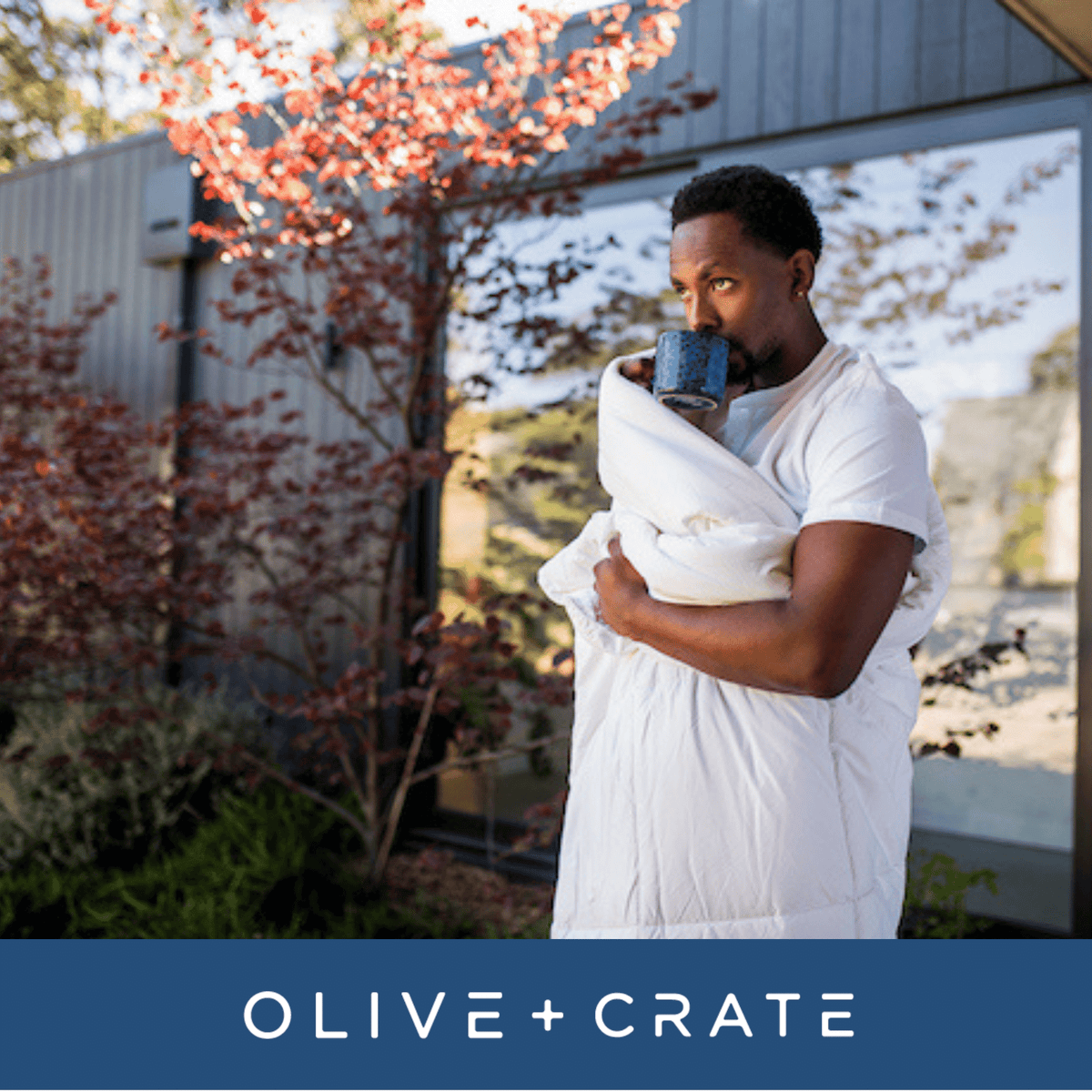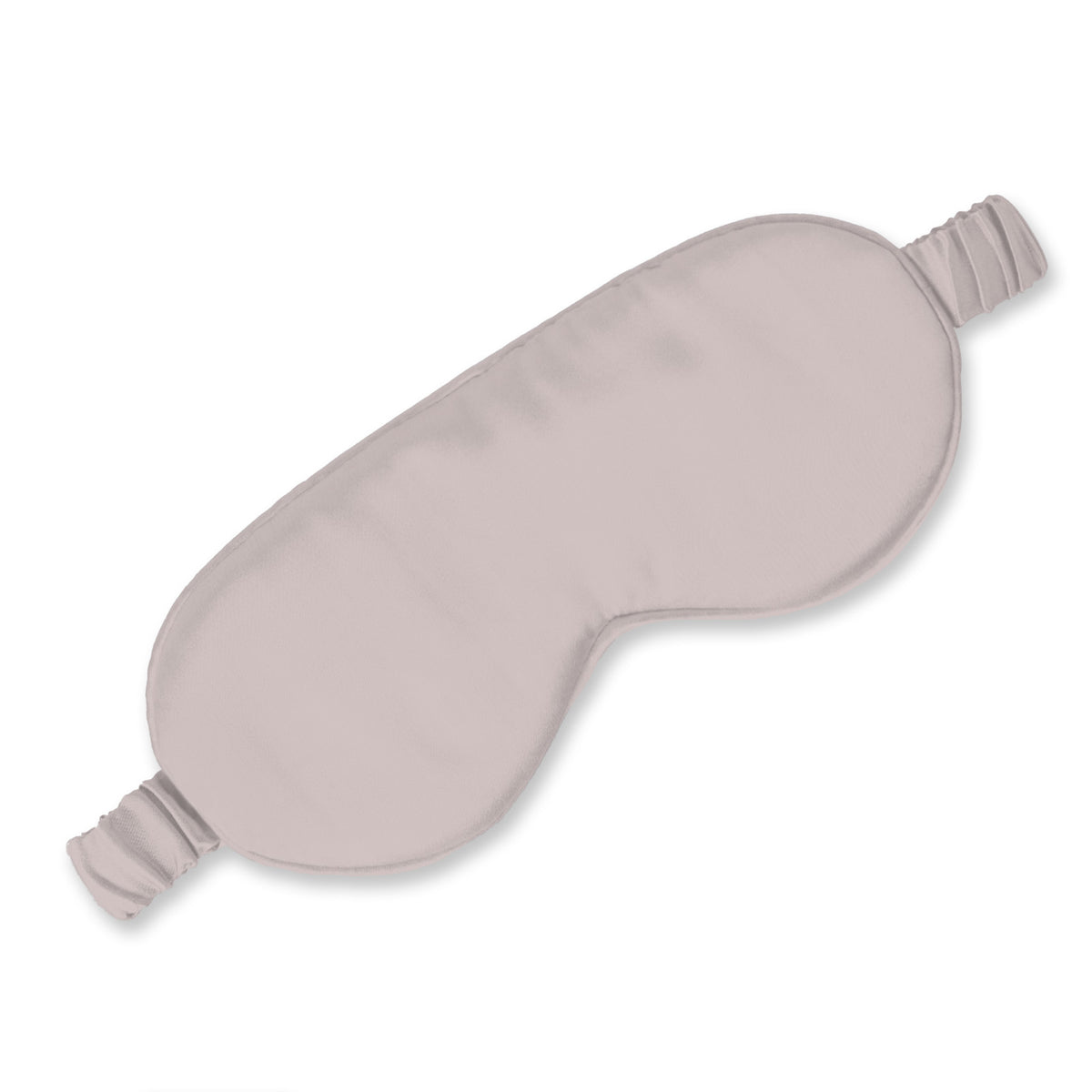Eczema makes even simple routines, like getting a good night’s sleep, more challenging. Because your sheets stay in constant contact with your skin, they can either soothe irritation or make it worse.
Choosing the best sheets for eczema means finding fabrics that feel cool, breathable, and gentle, so your skin can finally rest while you do.
Fabrics That Work—and Fabrics to Avoid
Natural fibers are generally the safest, most soothing option for sensitive skin. They breathe well, manage moisture, and offer a softer, smoother touch. Among the best options are:
-
Eucalyptus (TENCEL™ Lyocell): Exceptionally smooth and cool to the touch, hypoallergenic, and highly breathable. It’s a top choice if you’re exploring the benefits of eucalyptus sheets for sensitive skin relief.
-
Organic Cotton: Crisp, light, and free from harsh pesticides or finishes when certified organic.
-
Bamboo: Naturally soft and moisture-wicking, helping to keep skin dry overnight.
By contrast, synthetic fabrics tend to trap heat and hold moisture against the skin. Common culprits to avoid include:
-
Polyester and Nylon: Plastics that create a warm, damp environment ideal for itching.
-
Microfiber: Less breathable and often chemically treated.
-
Wrinkle-Free or Stain-Resistant Sheets: Frequently finished with formaldehyde or other irritants.
These differences may seem small, but for sensitive skin, they can mean the difference between waking up calm or waking up scratching.
If you want to go deeper into fabric choices, you may also find it helpful to compare lyocell vs viscose fabric performance in daily use.
The Best Sheets for Eczema: Our Top Picks
If you’re ready to invest in eczema-friendly bedding, here are two proven winners:
-
Olive + Crate Eucalyptus Sheets: Made from 100% TENCEL™ Lyocell, these sheets are smooth, breathable, and naturally hypoallergenic. Their cool, silky surface reduces friction, making them an ideal choice for sensitive skin.
-
Organic Cotton Percale: A budget-friendly option that’s crisp, light, and softens beautifully with each wash. Organic certification means no hidden chemicals or pesticides.
Ultimately, both options deliver comfort and breathability, but eucalyptus has the edge when it comes to long-term relief and advanced skin support.
In short, eucalyptus sheets are the luxury pick for lasting relief and skin health, while organic cotton offers a dependable, affordable everyday option.
For anyone comparing choices, it can also help to look into hypoallergenic bedding options designed for sensitive skin.
Thread Count and Weave: Why Details Matter
It’s easy to assume a higher thread count equals higher quality, but for eczema sufferers, that isn’t always true. Sheets with more than 400 threads per square inch can actually restrict airflow, leading to overheating and discomfort.
Instead, aim for a range of 200 to 400, which gives you both breathability and softness. Beyond the numbers, the weave also shapes your sleep experience:
-
Percale: Crisp, airy, and lightweight, making it ideal for hot sleepers.
-
Sateen: Silky, smooth, and gentle against sensitive skin, with a soft drape.
Think of thread count and weave as fine-tuning your comfort—the right balance makes a world of difference.
Smarter Innovations for Sensitive Sleepers
The bedding industry has evolved, and some of the innovations truly benefit eczema-prone skin. Among the most helpful are:
-
Moisture-Wicking Fibers: Materials like eucalyptus actively pull moisture away, preventing dampness that can worsen irritation.
-
Antimicrobial Infusion: Some sheets are made with silver or zinc woven into the fibers, helping to reduce bacteria and allergens.
-
Hypoallergenic Properties: Natural resistance to dust mites and mold helps minimize common eczema triggers.
These modern touches aren’t gimmicks; they add up to fewer flare-ups and a healthier night’s sleep.
How to Shop with Confidence
Labels can be tricky, so learning what to look for is key. Certifications are your best friend when it comes to verifying safety:
-
OEKO-TEX® STANDARD 100: Ensures the fabric has been tested free of harmful chemicals.
-
GOTS (Global Organic Textile Standard): Confirms at least 95% organic fibers and sustainable production practices.
Red flags to watch out for include vague phrases like “eco-friendly” with no certification, or harsh dyes in bright, saturated colors.
Even your pillowcases deserve the same consideration, especially if you’ve thought about the connection between your face and your pillowslip when it comes to acne or wrinkles.
Caring for Your Sheets Like Skincare
Even the best sheets for eczema won’t stay skin-friendly if they aren’t cared for properly. Think of washing your sheets as an extension of your skincare routine:
-
Use fragrance-free, dye-free detergent to avoid chemical residues.
-
Wash in warm water, which balances cleanliness and fabric care.
-
Skip fabric softeners and dryer sheets, as they coat fibers with irritants.
-
Dry on low heat, or use wool dryer balls for natural softness.
These small adjustments help preserve your sheets’ soothing qualities and protect your investment in healthier sleep.
Restful Nights, Calmer Skin
Managing eczema is a combination of small, thoughtful choices that makes a difference. Choosing bedding designed for sensitive skin can ease irritation, improve sleep, and give your skin space to heal.
Olive + Crate eucalyptus sheets are made to support that balance. Naturally breathable, moisture-wicking, and hypoallergenic, they offer the kind of softness and comfort that helps you drift off with fewer worries and wake up feeling more at ease.
👉 Experience the calming difference of Olive + Crate bedding today.


